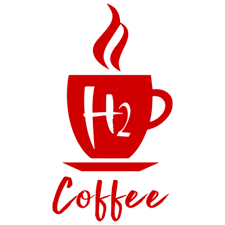Hydrogen or caffeine, the effects on humanScientific Research

Hydrogen-rich water and caffeine for alertness and brain metabolism in sleep-deprived habitual coffee drinkers
https://doi.org/10.1002/fsn3.2480
Nikola Todorovic,Dragana Zanini,Valdemar Stajer,Darinka Korovljev,Jelena Ostojic,Sergej M. Ostojic
Abstract
The primary objective of this randomized, controlled, crossover intervention study was to evaluate the acute effects of ingestion of a single dose of hydrogen-rich water (HRW) versus caffeine, HRW plus caffeine, and control water on increased alertness, brain metabolism, brain and oxygen saturation and self-reported adverse events in healthy men and women who were habitual coffee drinkers and were deprived of 24 hours of sleep. Sixteen apparently healthy young adults (8 men and 8 women; age 24.0 ± 3.5 years) received single-dose beverages containing HRW (8 ppm), caffeine (50 mg), HRW plus caffeine, or a crossover design of control drink (tap water) in the morning after 24 hours of sleep deprivation and 12 hours of fasting. Primary and secondary outcomes were assessed at baseline (pre-intervention) and after 15-minute follow-up. The time required to complete the follow-up test was significantly reduced (p<0.05) after HRW and HRW plus caffeine compared to the control beverage. After drinking HRW or caffeine, the number of errors on the signed-digit modality test was significantly lower than with the control drink (p<0.05). Both HRW and caffeine significantly increased choline to creatine ratios in multiple brain regions (frontal white and gray matter), while HRW and combined intervention also affected cerebral metabolism in the paracentral brain. None of the participants reported any side effects from any of the interventions. HRW-driven attention enhancement occurs with changes in brain metabolism. Therefore, since hydrogen is widely regarded as a safe intervention, it can be recommended as a novel intervention for maintaining alertness in stressful conditions with a potentially different metabolic footprint than caffeine.
Conclusion
Drinking a single dose of hydrogen-rich water improves trail-making test performance and reduces the number of errors in symbol digit modalities test in coffee habituated sleep-deprived young adults. The attention enhancement driven by HRW appears to go with notable changes in brain metabolism, illustrated by higher choline-to-creatine ratio levels in the frontal and paracentral brain. Being generally recognized as safe intervention (Food and Drug Administration., 2014), hydrogen could be thus recommended as a novel intervention that upholds attention in stressed conditions, with its metabolic footprint likely different from caffeine
ETHICAL APPROVAL
The study was approved by the local IRB at the University of Novi Sad (# 2-CFHRW/2020), with the study systematized following the Declaration of Helsinki and International Conference of Harmonization Efficacy Guidelines E6.
DOI: 10.1002
Published on: 19/07/2021
Hydrogen-rich water and caffeine for alertness and brain metabolism in sleep-deprived habitual coffee drinkers
https://doi.org/10.1002/fsn3.2480
Nikola Todorovic,Dragana Zanini,Valdemar Stajer,Darinka Korovljev,Jelena Ostojic,Sergej M. Ostojic
Abstract
The primary objective of this randomized, controlled, crossover intervention study was to evaluate the acute effects of ingestion of a single dose of hydrogen-rich water (HRW) versus caffeine, HRW plus caffeine, and control water on increased alertness, brain metabolism, brain and oxygen saturation and self-reported adverse events in healthy men and women who were habitual coffee drinkers and were deprived of 24 hours of sleep. Sixteen apparently healthy young adults (8 men and 8 women; age 24.0 ± 3.5 years) received single-dose beverages containing HRW (8 ppm), caffeine (50 mg), HRW plus caffeine, or a crossover design of control drink (tap water) in the morning after 24 hours of sleep deprivation and 12 hours of fasting. Primary and secondary outcomes were assessed at baseline (pre-intervention) and after 15-minute follow-up. The time required to complete the follow-up test was significantly reduced (p<0.05) after HRW and HRW plus caffeine compared to the control beverage. After drinking HRW or caffeine, the number of errors on the signed-digit modality test was significantly lower than with the control drink (p<0.05). Both HRW and caffeine significantly increased choline to creatine ratios in multiple brain regions (frontal white and gray matter), while HRW and combined intervention also affected cerebral metabolism in the paracentral brain. None of the participants reported any side effects from any of the interventions. HRW-driven attention enhancement occurs with changes in brain metabolism. Therefore, since hydrogen is widely regarded as a safe intervention, it can be recommended as a novel intervention for maintaining alertness in stressful conditions with a potentially different metabolic footprint than caffeine.
Conclusion
Drinking a single dose of hydrogen-rich water improves trail-making test performance and reduces the number of errors in symbol digit modalities test in coffee habituated sleep-deprived young adults. The attention enhancement driven by HRW appears to go with notable changes in brain metabolism, illustrated by higher choline-to-creatine ratio levels in the frontal and paracentral brain. Being generally recognized as safe intervention (Food and Drug Administration., 2014), hydrogen could be thus recommended as a novel intervention that upholds attention in stressed conditions, with its metabolic footprint likely different from caffeine
ETHICAL APPROVAL
The study was approved by the local IRB at the University of Novi Sad (# 2-CFHRW/2020), with the study systematized following the Declaration of Helsinki and International Conference of Harmonization Efficacy Guidelines E6.



